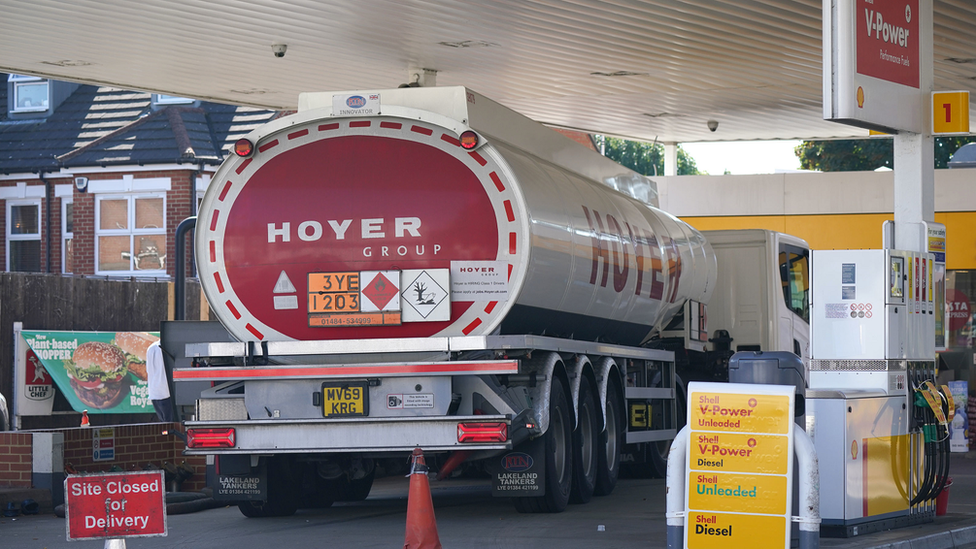Fuel demand should return to normal in coming days, say suppliers
- Published
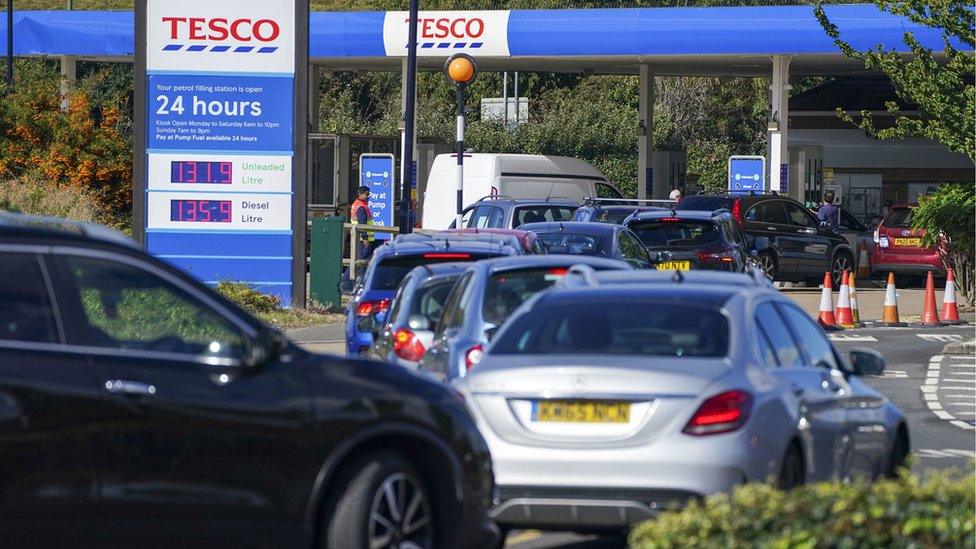
Cars lined up for fuel in Stanwell, Surrey, but in many other places forecourts have shut after pumps ran dry
Demand for petrol is expected to return to normal levels in the coming days, easing pressure on station forecourts, the fuel industry has said.
In a joint statement, 10 companies, including BP and Shell, said there was plenty of fuel at refineries and urged people to buy it as they usually would.
Earlier, the environment secretary said there were no plans at the moment to bring in the Army to drive tankers.
But sources told the BBC that ministers are still seriously considering this.
Meanwhile, doctors and home care staff have called for essential workers to be given priority for fuel.
The Petrol Retailers Association, which represents nearly 5,500 of the UK's 8,000 filling stations, warned on Sunday that up to two-thirds of outlets were out of fuel, with the rest of them "partly dry and running out soon".
But in a joint statement on Monday evening, a group of leading suppliers said: "There is plenty of fuel at UK refineries and terminals, and as an industry we are working closely with the government to help ensure fuel is available to be delivered to stations across the country.
"As many cars are now holding more fuel than usual, we expect that demand will return to its normal levels in the coming days, easing pressures on fuel station forecourts."
It comes after Environment Secretary George Eustice blamed queues at petrol stations and empty pumps on people buying fuel when they do not need it.
He said the lack of HGV drivers would have been "entirely manageable" if it were not for the reaction to media coverage about a limited number of forecourt closures.
"Things will calm down. Those who are anxious - many of them will have filled up their cars with petrol now and things will then return to normal."
Mr Eustice said there were always civil contingency plans involving the Army but it was not thought necessary to call them in at the moment.


Many in government are hoping this situation begins to resolve itself.
They believe many people worried about shortages have already filled up their tanks - so the situation may start to die down.
But if we continue to see queues at petrol stations there will be significant pressure for action.
We know the new visas for HGV drivers aren't an overnight fix.
So the option of sending the Army to drive tankers to forecourts is still being considered.
A final decision on that has not been made. But if is does happen, extra training of armed forces personnel would be required.
Ministers hope such action can be avoided.
But the last few days have shown pleas for calm have not always been successful.

Brian Madderson, chairman of the Petrol Retailers Association, said the industry had problems with a shortage of HGV drivers but it only became a "critical situation" when a submission by BP to the cabinet was leaked, sparking widespread coverage and panic buying.
"One of our members yesterday received a tanker at midday and by late afternoon the entire tanker had disappeared into people's cars," he told BBC Radio 4's Today programme.
Mr Madderson said that customers themselves could solve the problem of pumps running dry.
"If they start buying in their normal quantities, £20 worth, 20 litres to fill up every week, we could see by the end of this week some return to normality - it won't be perfect, but some return," he said.
Key workers and essential trips affected by panic buying
Meanwhile, the lack of fuel in some forecourts has led to calls from the British Medical Association, the Royal College of Nursing and the UK Homecare Association for healthcare staff and essential workers to be given priority access.
BMA chairman Dr Chaand Nagpaul said: "As pumps run dry there is a real risk that NHS staff won't be able to do their jobs and provide vital services and care to people who urgently need it."
The UK Homecare Association said people had been left waiting for carers at home because staff have been caught in queues for petrol.
Ambulances have their own fuel pumps in their depots and their supplies are expected to be prioritised, however.
The shortage of lorry drivers has caused problems for a range of industries in recent months, from supermarkets to fast food chains.

More on the lorry driver shortage

The government said on Sunday it would temporarily exempt fuel companies from competition law, as part of "long-standing" contingency plans to maintain supplies, allowing them to target supplies at areas most in need.
On Saturday, the government also announced it would offer temporary visas, lasting until Christmas Eve, to 5,000 foreign fuel tanker and food lorry drivers and 5,500 poultry workers in a bid to limit disruption in the build up to Christmas.
Other measures include sending nearly one million letters to drivers who hold an HGV licence - to encourage them back into the industry - and plans to train 4,000 people to become HGV drivers.
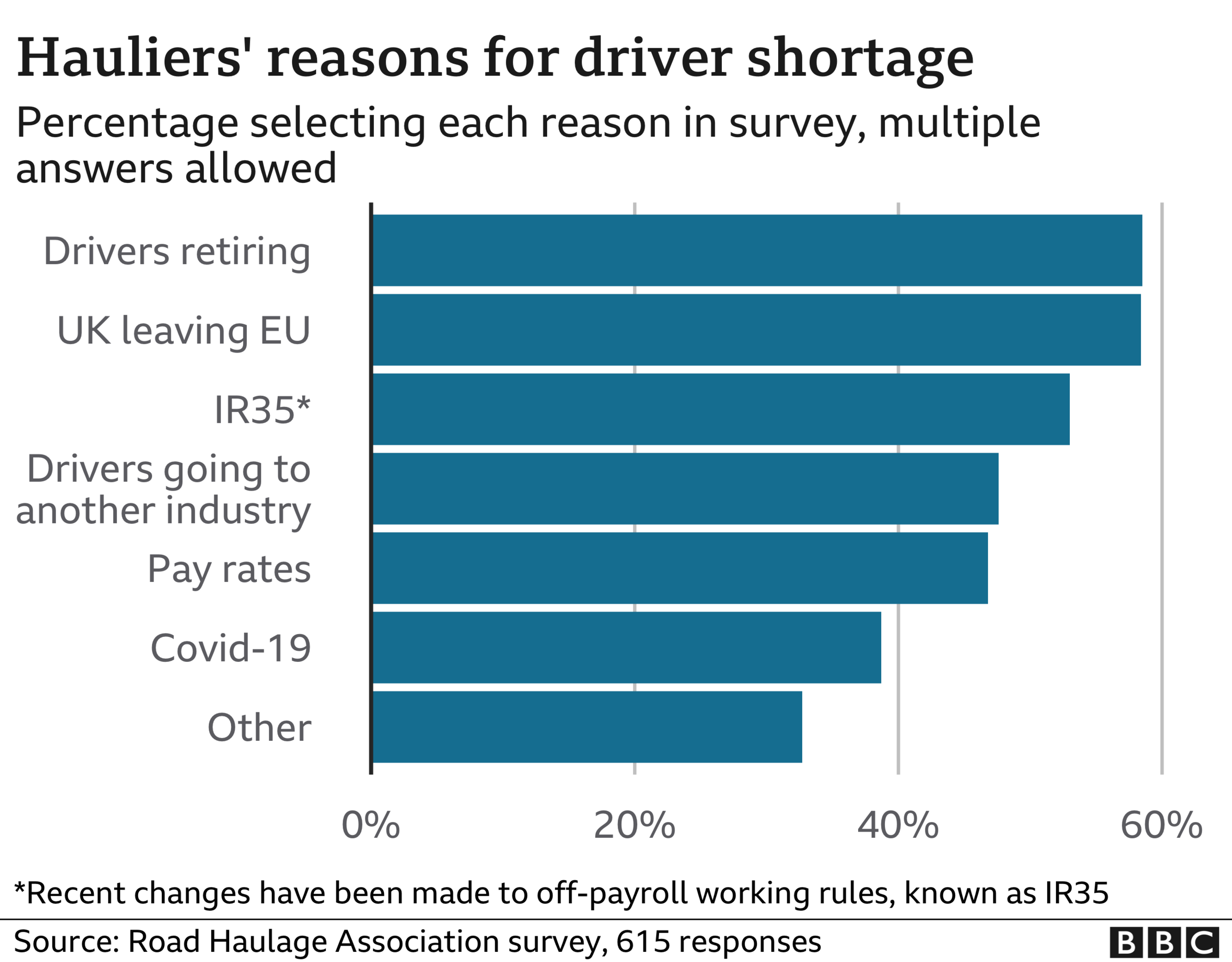
A survey from earlier this year suggests a number of reasons for the driver shortage
Elizabeth de Jong, director of policy for Logistics UK, told Today that it would be "days, possibly a couple of weeks" before the visa applications were open.
She said the industry had wanted more visas to be available and for a longer time, but she said the key issue now was to make them attractive to drivers, which was likely to mean offering good wages.
The UK had lost 72,000 drivers between the second quarter of 2019 and the same period in 2021, Ms de Jong said - partly due to people returning to the EU after Brexit.
At the same time, she said the pandemic had disrupted testing for HGV licences, making it harder to replace the lost drivers.
But Mr Eustice denied that Brexit had been a major factor in the driver shortage.
"None of this is because we have left the European Union," he said. "The biggest factor has been Covid."

WHAT WE LEARNED FROM THE OFFICE: Secrets, facts and behind-the-scenes gossip about the beloved British comedy
WHAT TO TAKE TO UNI: The must-haves and easily forgotten essentials for starting university


How have you been affected by the fuel crisis? Share your experiences by emailing haveyoursay@bbc.co.uk, external.
Please include a contact number if you are willing to speak to a BBC journalist. You can also get in touch in the following ways:
WhatsApp: +44 7756 165803
Tweet: @BBC_HaveYourSay, external
Please read our terms & conditions and privacy policy
If you are reading this page and can't see the form you will need to visit the mobile version of the BBC website to submit your question or comment or you can email us at HaveYourSay@bbc.co.uk, external. Please include your name, age and location with any submission.
Related topics
- Published27 September 2021
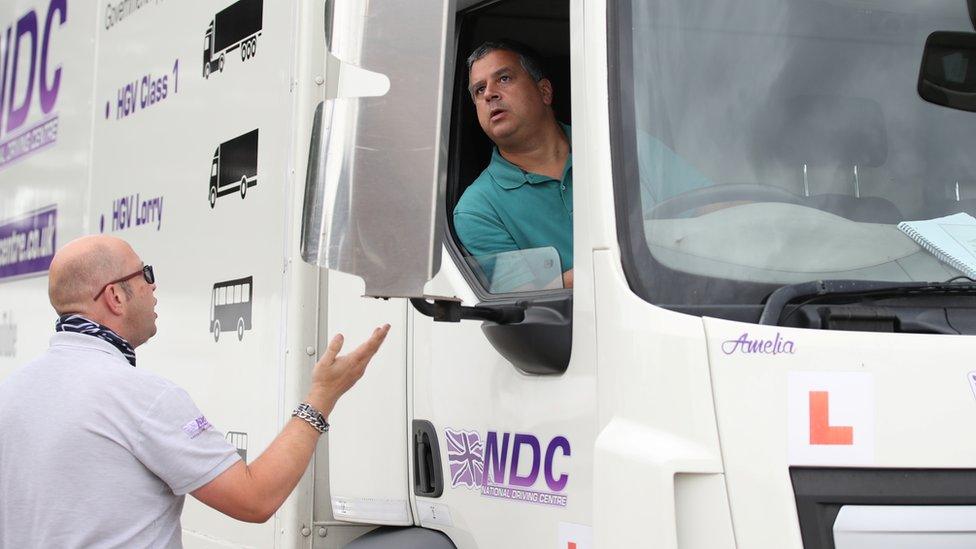
- Published27 September 2021
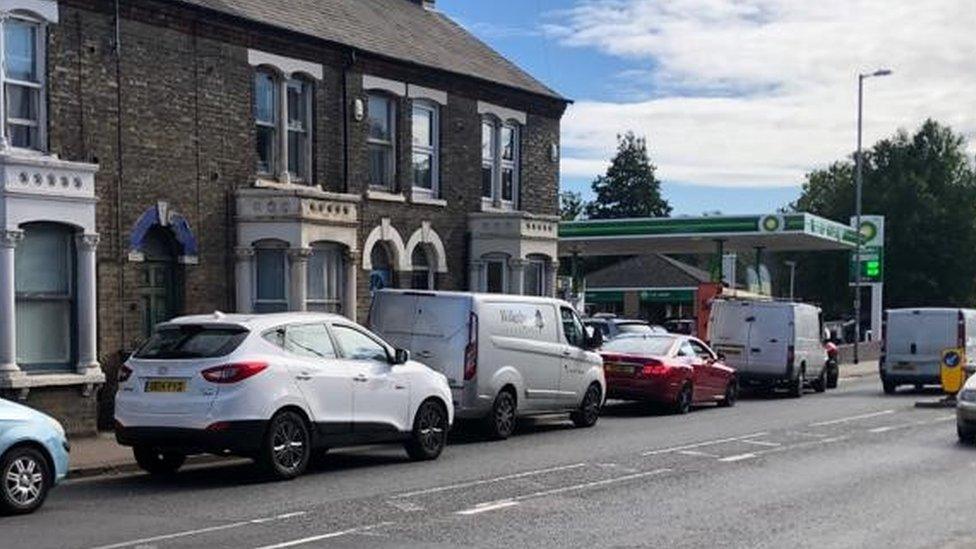
- Published26 September 2021
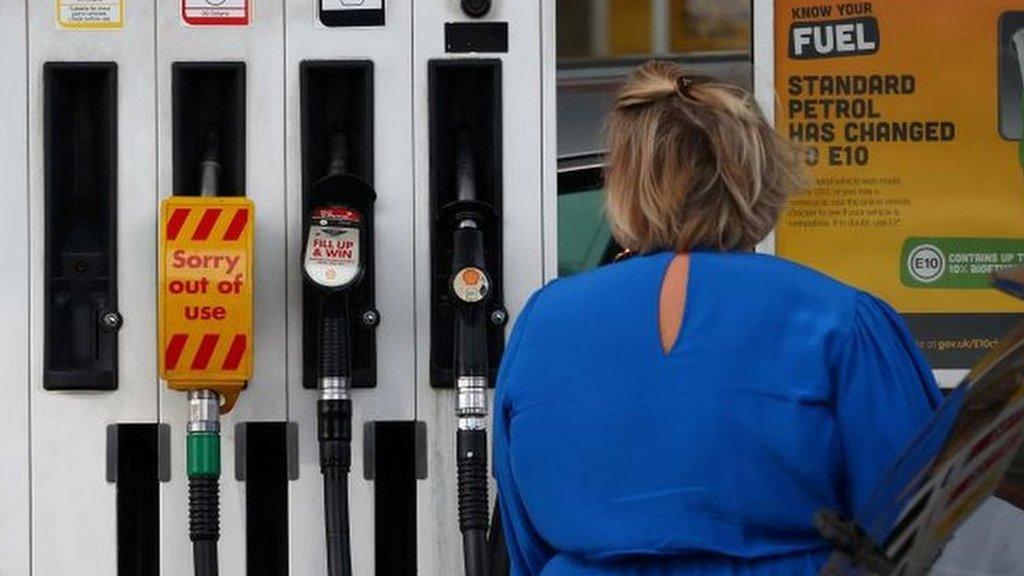
- Published26 September 2021
